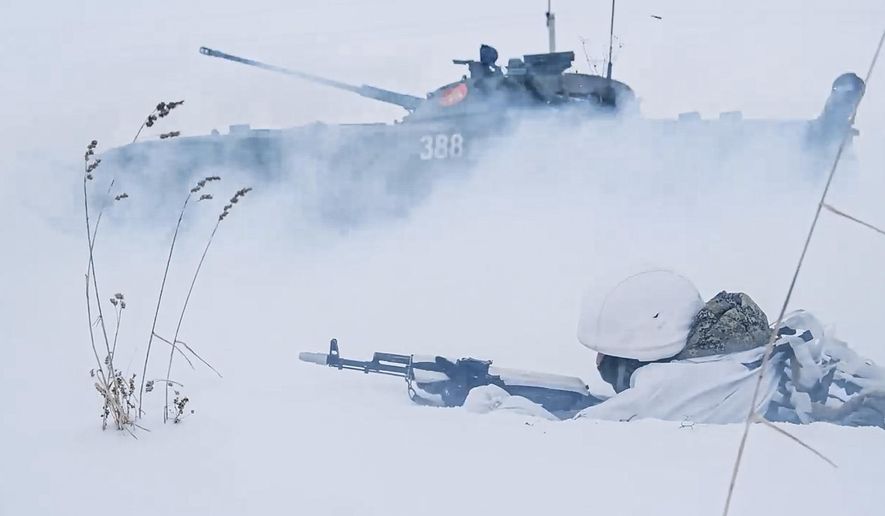Russia can sell its fuel in markets around the world but apparently cannot supply the tanks President Vladimir Putin sent into neighboring Ukraine as part of an invasion now nearly a week old. On Tuesday, Pentagon officials said a massive Russian armored column has been bogged down on its advance to Kyiv in part because of lack of supplies.
A senior Defense Department official said the Russian column has faced greater resistance than it expected and not just from a vigorous Ukrainian resistance.
“What we’re seeing are columns that are literally out of gas and now they’re starting to run out of food for their troops,” the official told reporters at the Pentagon. “We’re only on Day 6” of the invasion.
Russia’s troops in Ukraine are primarily conscripts pressed into military service and Pentagon officials said they have seen signs that morale in some of the units is low.
“Not all of them are fully-trained or prepared, or even aware that they were going to be sent into a combat operation,” the senior Defense Department official said in a background briefing. “We do have indications that some [Russian] units have surrendered without a fight.”
But Pentagon officials added that the Russians will likely learn from their mistakes on the battlefield going forward.
“They will regroup, they will adjust, and they will change their tactics,” the Defense Department officials said.
There were growing signs Tuesday that Mr. Putin’s invasion was backfiring badly on at least one account, uniting the European Union and the sometimes fractious members of NATO against Russia and in support of neighboring Ukraine.
“We have witnessed a fundamental change of policies across the democratic world,” Prime Minister Kaja Kallas of Estonia said Tuesday during a visit to a local military base by British Prime Minister Boris Johnson and NATO Secretary-General Jens Stoltenberg. “We need to continue our urgent support to Ukraine. We cannot stop until we have stopped Putin.”
Mr. Johnson said on a visit to the region Tuesday that Mr. Putin made a “disastrous miscalculation” when he ordered the invasion. “The Ukrainians have mounted an astonishing and tenacious resistance,” he said.
Since the invasion, NATO has rapidly increased its military presence in eastern Europe to deter Russian aggression against members of the alliance, including sending 100 jet fighters on high alert and 120 ships on naval patrols from the Baltic Sea to the Mediterranean, Mr. Stoltenberg said.
“We will protect and defend every inch of NATO territory,” he said. “NATO is a defensive alliance. We do not seek conflict with Russia.”
• Mike Glenn can be reached at mglenn@washingtontimes.com.




Please read our comment policy before commenting.